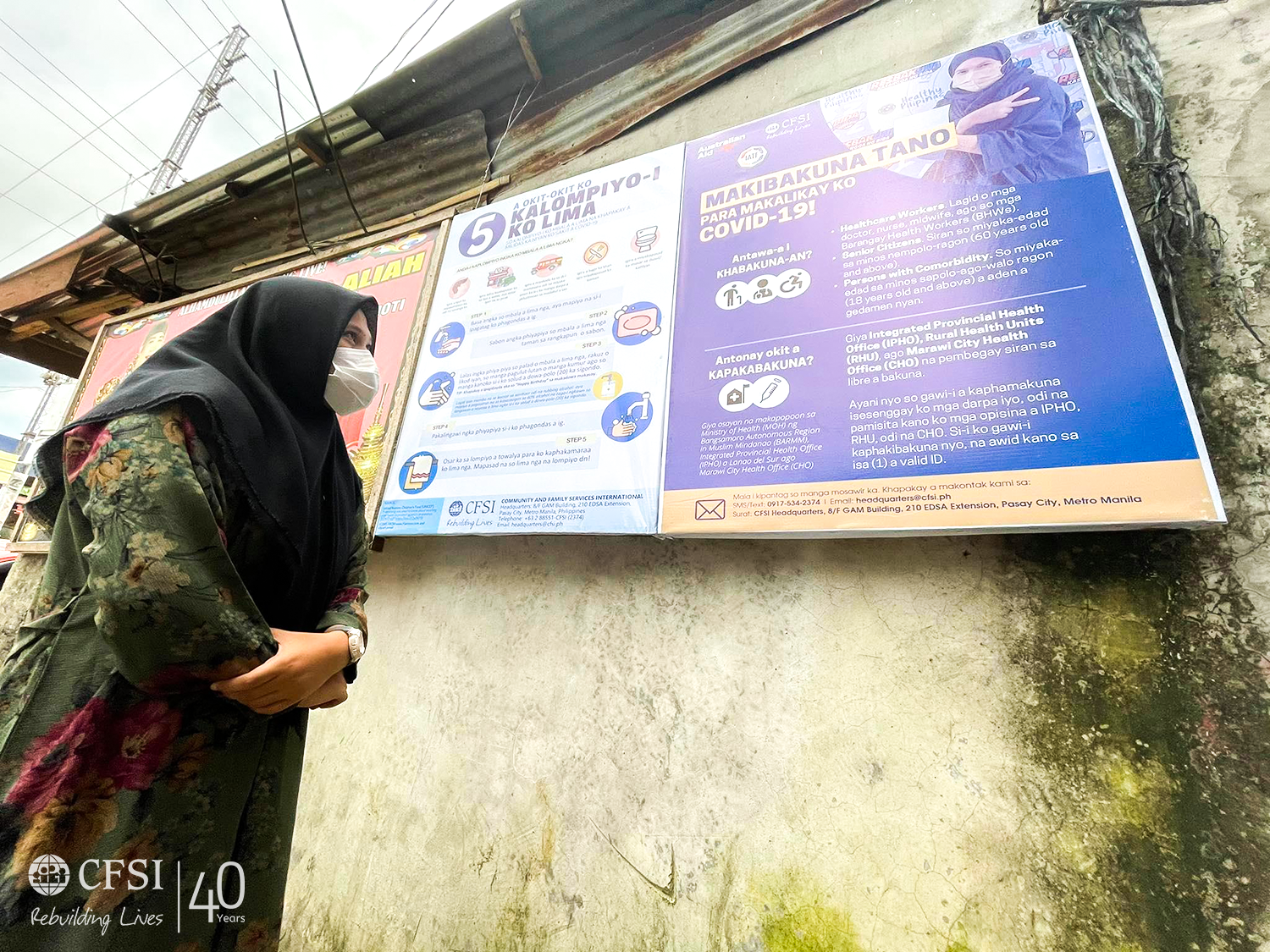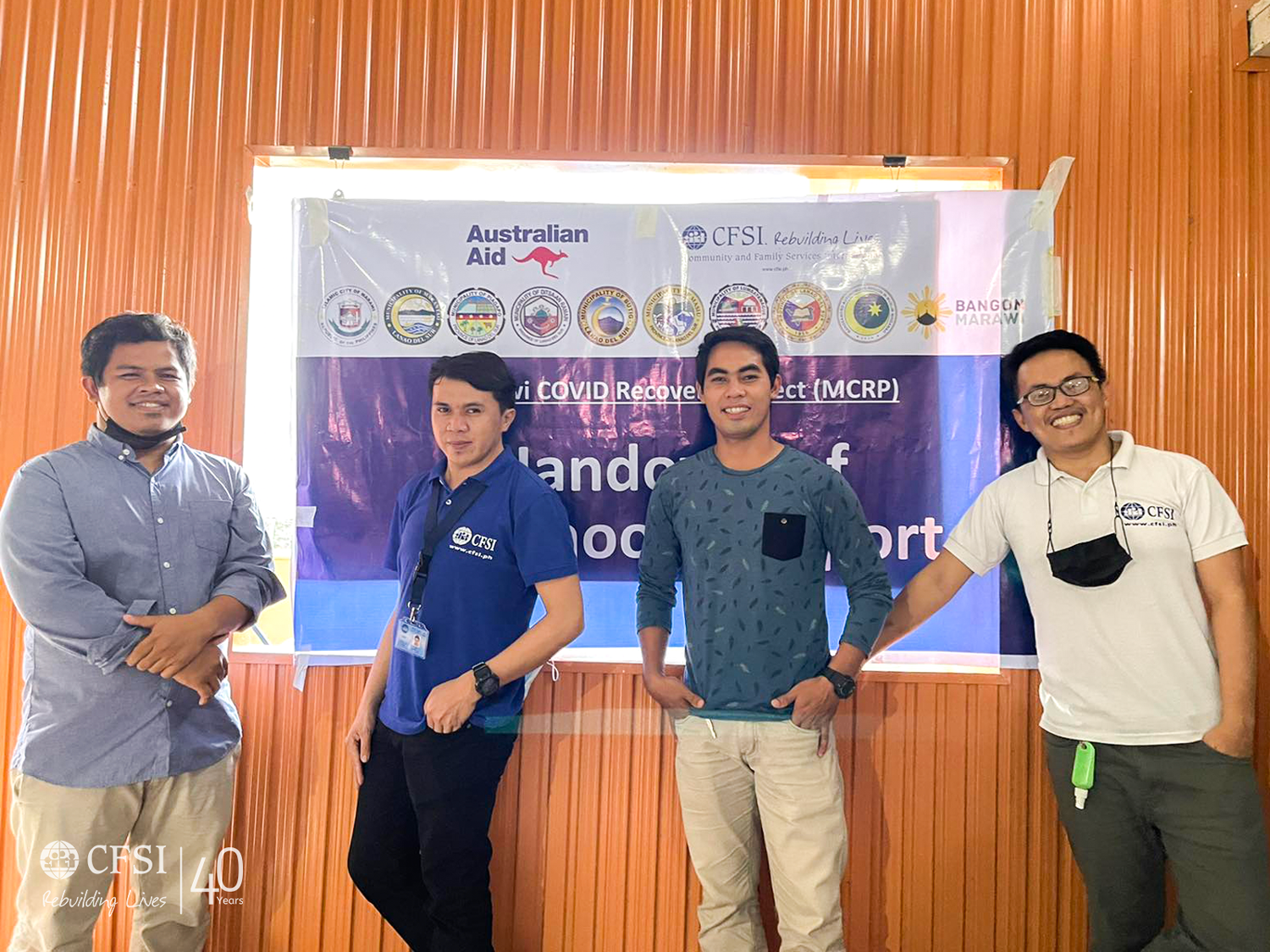Meranaw is the language of the Indigenous Peoples group of Meranaw who are mostly residing in Marawi City and the provinces of Lanao del Sur and Lanao del Norte in Mindanao, Philippines. Many beneficiaries and partners of Community and Family Services International (CFSI) speak the language so it aims to convey messages in their native tongue.
Mohammad Nassif “Nash2” Elias, a Meranaw himself, helps in translating information, education, and communication (IEC) materials of CFSI to the local language. He also discusses topics like protection and food security in the communities using their first language. Nash2 is the Protection Officer of CFSI under the Marawi COVID Recovery Project (MCRP).
“Many remote areas have a concern on literacy, that is why if you really want your message to be understood, you have to use their vernacular language,” he shared. “You need to use their language to establish a humble image to the community. They appreciate you more when you speak their words, and it gets their attention better. That way, you can relay information and learnings better,” he added.
CFSI endeavors to facilitate humanitarian education to communities in the most efficient means. One of the effective ways is by translating information to local language to make messages clearer and more relatable.
By enabling the people to understand better, it causes them to move and relay the transformative messages to others who need to know.

Information materials such as the vaccination campaign for COVID-19 were translated in Meranaw with the aim to help communities better understand the benefits of vaccination.
Yusoph “Yukie” Dangcal, an MCRP community organizer, shared that people respond better when they discuss in Meranaw. People were more comfortable participating in workshops using the language they grew up with.
“Whenever we use Meranaw in our lectures, the community feels a sense of belongingness. They become more confident in sharing their thoughts,” Yukie said. “At the end of the day, I feel more confident that they have learned something from me,” He added.
Amanoddin “Aman” Macacuna, another MCRP community organizer, saw the need to translate information materials in Meranaw, especially in rural areas, as most materials were either written in English or Filipino.
“We are concerned in localizing materials for the community so that they could understand and participate better,” Aman furthered.
Abdulnassif “Nash1” Tanggor, also an MCRP community organizer, affirmed the importance of localizing the information.
“Most community members tend to ignore materials in English or Filipino because they can barely understand them. Now, they take time to pause to read the posters we made in Meranaw,” he said.
Aman added that people used to ask them to translate the materials so they themselves can teach the lessons to children and others who may need to know about human rights, referral pathways, and community preparedness, among others. Now, with the localized materials, people can easily share information.

From left to right: Nash1, Yukie, Aman, and Nash2 translate visibility materials that CFSI use to better facilitate transformative learning in communities.
Still, for a language that needs more study, translation is still a difficult task, even for Lanao del Sur natives such as these four.
Nash2 said that translating words and grasping the context of English words and phrases to Meranaw is one of the most difficult hurdles in localizing the materials.
“There are English words that do not have a direct translation in Meranaw language. The least we can do is find a word that has the closest meaning or context and translate not by words, but by sentences,” Nash2 explained.
Despite the challenges, the four humanitarian workers are committed to continuing localizing messages to help their fellow Meranaws. They hope that with this simple act, they can catalyze change and help empower communities. #

